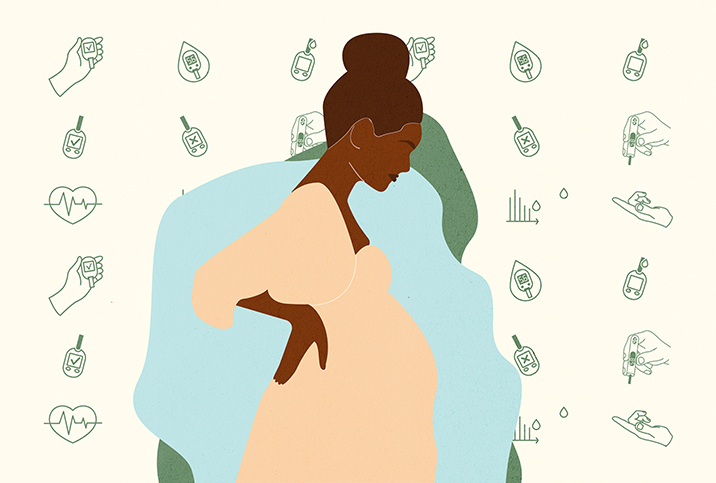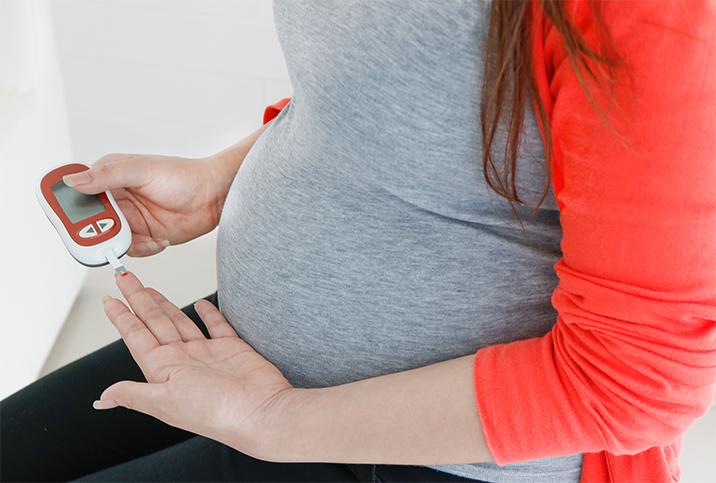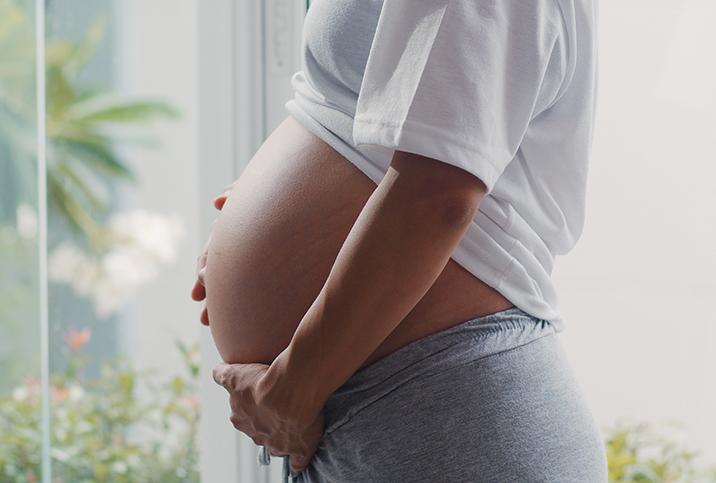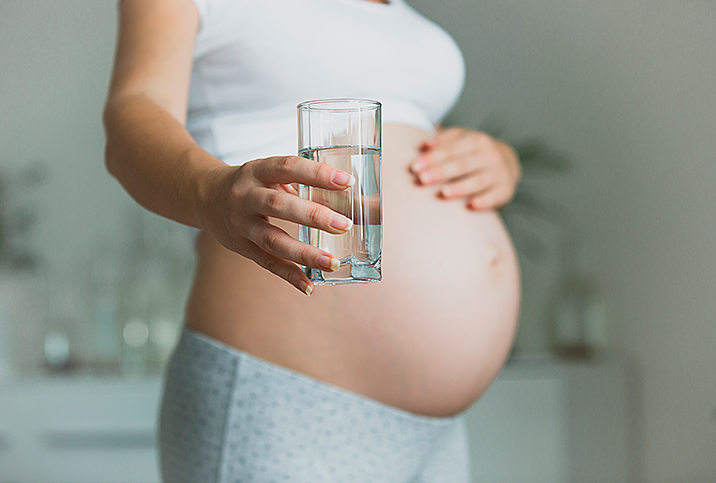Gestational Diabetes Is Manageable With Nutritional Changes

When Kristin Eid was pregnant with her first child in 2020, the only thing that helped alleviate her nausea was carbs. But everything changed when she was diagnosed with gestational diabetes.
"The first [glucose test] was two hours and I failed it," said Eid, who lives in New Jersey. "I had to go back for the four-hour test. They called me at home to inform me that I had failed that, too."
As a result, the 35-year-old was placed on a special diet for the remainder of her pregnancy.
"A nutritionist gave me a meal plan to follow and I had to test my glucose levels two hours after every meal," Eid said. "Also, first thing when I woke up in the morning, I had to stay under a certain level. As long as I did that, I was able to manage the diabetes through my diet. I didn't have to take insulin."
The menu Eid was advised to follow allowed two servings of carbohydrates in the morning, three servings for lunch and three to four servings for dinner. Options included one cup of brown rice or one piece of fruit, which counted as one serving.
"I felt like my food choices were very limited, which was hard because I wasn't used to it," she said. "I couldn't even eat the Halo Top low-calorie brand of ice cream because if I did my sugar levels would spike."
"One day, I ate macaroni and cheese, which was within the carbohydrates per serving I was allowed but, because it was white pasta, my sugar levels spiked," Eid added.
Risk factors of gestational diabetes
According to Sonalika Khachikian, M.D., an endocrinologist with Monument Health Hospital in Rapid City, South Dakota, gestational diabetes is defined as glucose intolerance in the second or third trimester of pregnancy, and Eid is among the 6 percent to 9 percent of women who develop this condition. Gestational diabetes occurs when your body can't make enough insulin during your pregnancy.
"Gestational diabetes is fortunately easy to manage but requires some work on the part of the pregnant person," said Christina S. Han, M.D., division director of maternal-fetal medicine and associate clinical professor of obstetrics & gynecology at the University of California in Los Angeles (UCLA).
Even more concerning, gestational diabetes is on the rise. A 2018 report from the Centers for Disease Control and Prevention (CDC) indicated that from 2012 to 2016, the prevalence of gestational diabetes in the United States increased from 5.2 percent to 5.6 percent.
Gestational diabetes occurs when your body can't make enough insulin during your pregnancy.
"In addition to the trend of delaying childbearing, this rise also parallels the increase in diabetes and body mass index in the general population," Han said. "Both maternal age and body mass index or obesity increases the risks of diabetes in pregnancy." (A body mass index, or BMI, of greater than 30 is considered obese.)
"The risks of having diabetes in pregnancy include spontaneous abortion, fetal anomalies or malformation, preeclampsia elevated blood pressure, fetal demise, macrosomia or large infants, neonatal hypoglycemia and neonatal respiratory distress syndrome," Khachikian said.
Pregnancy and childbirth with gestational diabetes
When Eid gave birth to her son in August 2020, it was by cesarean section because her baby was on the larger side of the spectrum. She explained the baby's size could have been caused by either her gestational diabetes or genetics.
"I had to have more frequent sonograms than a normal pregnancy would have, and with gestational diabetes, they don't allow you to go past your due date," Eid added. "I went into labor two days before an induction had been scheduled."
Luckily, after giving birth, Eid's gestational diabetes subsided, but now she is pregnant with a second child.
"If gestational diabetes happens the same as last time, one of my concerns is eating carbs and potatoes and stuff through 18 weeks to deal with the nausea," Eid said. "That's not going to be good for the baby. So, having nausea is a little bit more concerning to me this time because of how I cope with it."
Because certain groups are at higher risk for gestational diabetes, Khachikian recommends early screening for women who have a history of gestational diabetes or impaired glucose metabolism, which can lead to increased insulin resistance.
"Women diagnosed with gestational diabetes have a 10fold increased risk of developing type 2 diabetes," Khachikian said. "It is recommended that women with a history of gestational diabetes be tested every three years for diabetes."


















